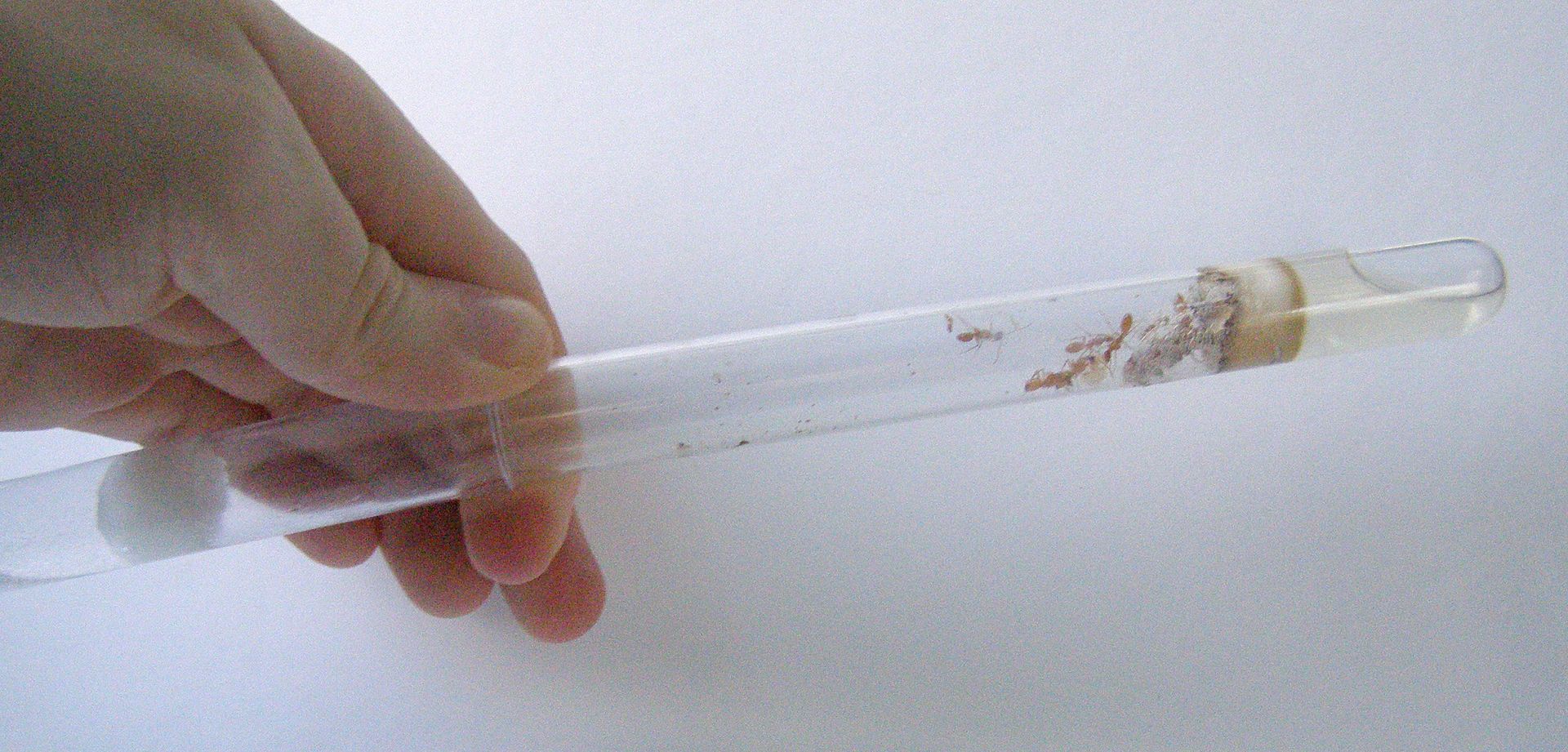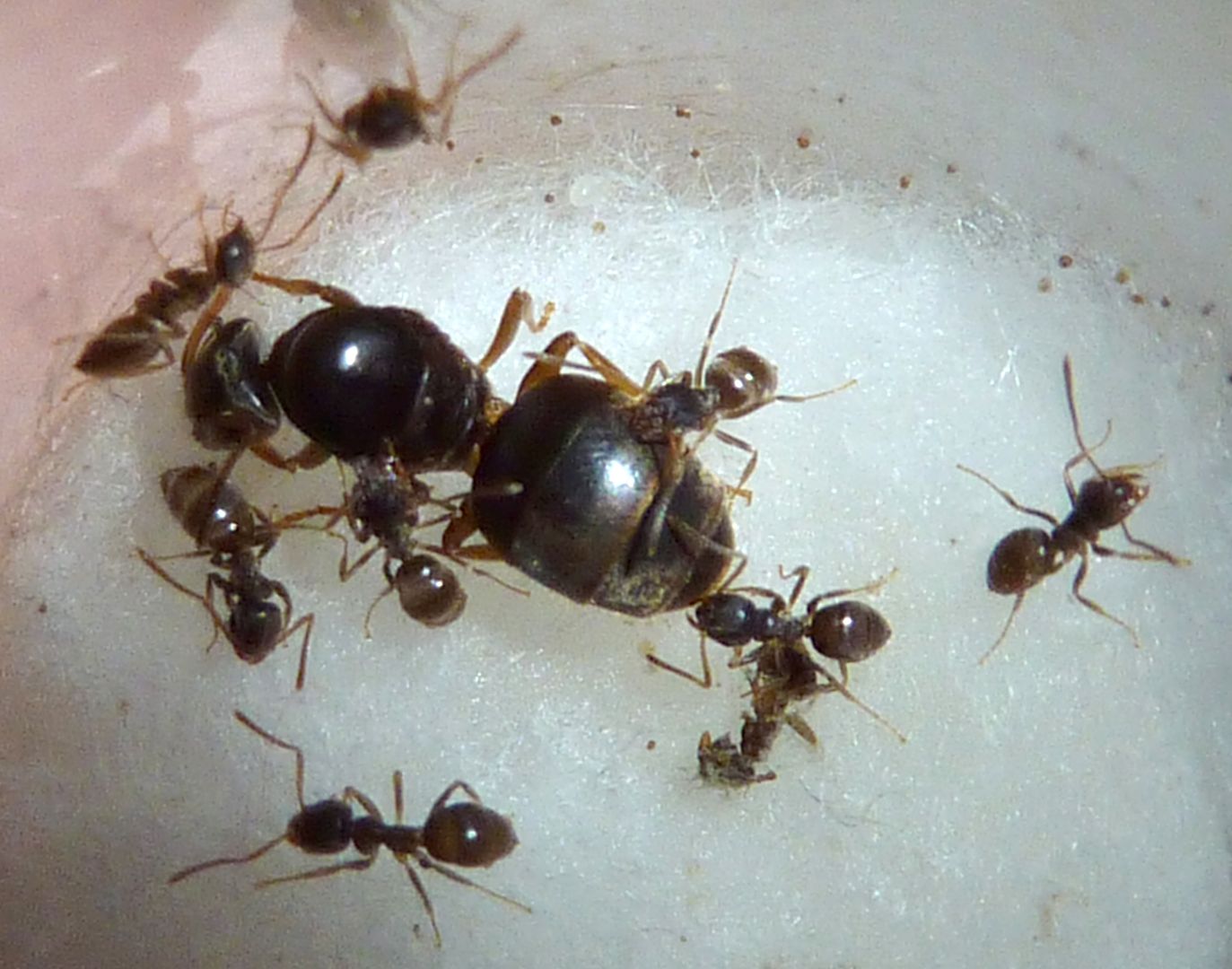Alright, the water in your tube is running low. You have to move the colony but the colony is to small to really bother with a larger dirt or plaster setup. What do you do? Move them to a new test tube of course. But the issue is the ants really don't want to move. It's especially difficult if the colony has brood and the eggs are near imposable to get out of the old tube. The issue of course being eggs are to vital to a young colony to lose, but if the ants find their old tube they'll move right back in. I've had this happen dozens of time.
Recently though I discovered an innovation. See what I'd normally do tape the two tubes together (old and new) leaving a small gap for moisture to escape. The gap is so condensation doesn't drown the ants. Well I did this to a colony of Lasius and I made the new tube seem so much more inviting. I made that side completely dark, but still they remained loyal to their mold piece of cotton. I was thinking well maybe they'll just move in a week or two.
A week or two passed and I seriously needed to feed the colony. Before breaking the tape off I had a genius idea. I tipped the colony once again to get them in the new tube. Only the queen and some workers fell though and the bulk of the colony and brood were still in the old nest. Apparently though that was good enough. The week or two the two tubes had spent connected allowed the colony odor or whatever it is that tells the ants "This is Home" was now in both tubes.
This didn't last though, but it was something nevertheless. The queen and workers that fell in the new tube remained calm and didn't bother moving back to the old nest until 3 days later. I can't help but feel that there is something to be exploited in this to get more instant results. Even though the queen has moved back with most of the workers I still see a worker or two checking the place out. Perhaps if I kept the new nest darker than the old one it may have triggered them to stay or move the rest of the colony.

